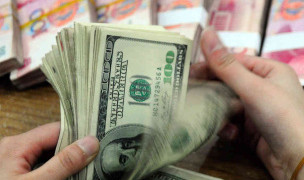 10 Terms
10 TermsHome > Terms > English (EN) > Olympians
Olympians
In the US, the Olympics have been the most obvious site for the intersection of sports and nationalism. Until recently, therefore, the major compensation that could be derived from being an Olympian, given the strictures associated with maintaining status as an amateur, came from the visibility afforded those who represented their country preferably with distinction. When most Americans played football and baseball, games which had only a limited international dimension, sporting outlets for nationalist and patriotic fervor were confined to the Olympics. Television commentators were acutely aware of this and their coverage of the Olympics focused fundamentally on highlighting American successes. Moreover, nationalist intensity associated with the Olympics was exacerbated by Cold-War rivalries. Americans as the leader of the “Free World” competed with East Germany and the Soviet Union, the communist powerhouses.
African American track stars, boxers and college basketball players were able, at least in small measure, to reap the benefits of favorable attitudes deriving from their goldmedal winning performances. Many of the athletes also celebrated their “Americanness,” often taking victory laps or in some way wrapping themselves in the American flag.
Other black athletes, especially at the 1968 Mexico and 1972 Munich Olympics, used the platform to make statements of protest against racial policies in the United States.
Many of the memorable moments in Olympic sports, then, have been those that could be framed in reference to nationalism. The Soviet Union’s disputed victory at the 1972 Munich Olympics against a highly favored American basketball team (the game being decided on a very controversial last-second play) was cause for dismay. Eight years later, at the winter games in Lake Placid, New York, during the Iran hostage crisis, the success of the US hockey team’s college players against the Soviet “machine” gave rise to widespread euphoria. In gymnastics, the five-medal performance of Mary Lou Retton at the 1984 Los Angeles games (clad in new flag-motif leotards) made her the darling of games tainted by a Soviet boycott.
This identification between nationalism and the Olympics has diminished somewhat in recent years. In part this is due to the end of Cold-War rivalries, but it is also a result of the growing professionalism of the Olympics. The athletes no longer need to maintain amateur status and so no longer pin all their hopes on their Olympic performances.
Moreover, some of the competitiveness has been undermined by the inclusion of professionals in recent games. Instead of a team of American basketball players drawn from the NCAA, the US now fields “dream teams” that pull in stars exclusively from the NBA. The winner of the gold medal is now a foregone conclusion and many of the games in which the United States plays end up being humiliating for the other team. In other Olympic sports, nationalist sentiment is on the rise. This is particularly so for women’s soccer, where Americans dominate but maintain strong rivalries with countries like Brazil and China, and patriotic feelings feed on the other major arena of sporting nationalism—soccer’s world cups.
- Part of Speech: noun
- Synonym(s):
- Blossary:
- Industry/Domain: Culture
- Category: American culture
- Company: Routledge
- Product:
- Acronym-Abbreviation:
Other Languages:
Member comments
Terms in the News
Billy Morgan
Sports; Snowboarding
The British snowboarder Billy Morgan has landed the sport’s first ever 1800 quadruple cork. The rider, who represented Great Britain in the 2014 Winter Olympics in Sochi, was in Livigno, Italy, when he achieved the man-oeuvre. It involves flipping four times, while body also spins with five complete rotations on a sideways or downward-facing axis. The trick ...
Marzieh Afkham
Broadcasting & receiving; News
Marzieh Afkham, who is the country’s first foreign ministry spokeswoman, will head a mission in east Asia, the state news agency reported. It is not clear to which country she will be posted as her appointment has yet to be announced officially. Afkham will only be the second female ambassador Iran has had. Under the last shah’s rule, Mehrangiz Dolatshahi, a ...
Weekly Packet
Language; Online services; Slang; Internet
Weekly Packet or "Paquete Semanal" as it is known in Cuba is a term used by Cubans to describe the information that is gathered from the internet outside of Cuba and saved onto hard drives to be transported into Cuba itself. Weekly Packets are then sold to Cuban's without internet access, allowing them to obtain information just days - and sometimes hours - after it ...
Asian Infrastructure Investment Bank (AIIB)
Banking; Investment banking
The Asian Infrastructure Investment Bank (AIIB) is an international financial institution established to address the need in Asia for infrastructure development. According to the Asian Development Bank, Asia needs $800 billion each year for roads, ports, power plants or other infrastructure projects before 2020. Originally proposed by China in 2013, a signing ...
Spartan
Online services; Internet
Spartan is the codename given to the new Microsoft Windows 10 browser that will replace Microsoft Windows Internet Explorer. The new browser will be built from the ground up and disregard any code from the IE platform. It has a new rendering engine that is built to be compatible with how the web is written today. The name Spartan is named after the ...
Featured Terms
Hallstatt
Situated in the south-western shore of the Hallstätter See, Hallstatt is a scenic village with its mountain-hugging chalets, elegant church spires and ...
Contributor
Featured blossaries
Browers Terms By Category
- General law(5868)
- Courts(823)
- Patent & trademark(449)
- DNA forensics(434)
- Family law(220)
- Legal aid (criminal)(82)
Legal services(8095) Terms
- Body language(129)
- Corporate communications(66)
- Oral communication(29)
- Technical writing(13)
- Postal communication(8)
- Written communication(6)
Communication(251) Terms
- Inorganic pigments(45)
- Inorganic salts(2)
- Phosphates(1)
- Oxides(1)
- Inorganic acids(1)
Inorganic chemicals(50) Terms
- Capacitors(290)
- Resistors(152)
- Switches(102)
- LCD Panels(47)
- Power sources(7)
- Connectors(7)





